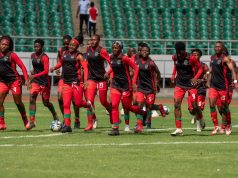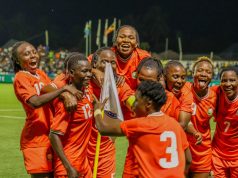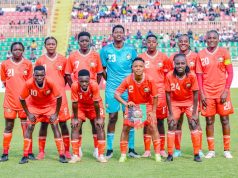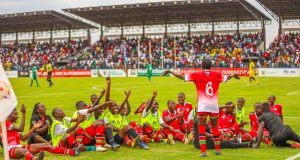Kenya’s women’s football is turning a vital corner. After years of neglect, low pay, and limited recognition, a quiet transformation is taking place one that is giving female footballers renewed hope and dignity in the sport they love.
For a very long time, women footballers walked home with nothing to show for their efforts but a few clubs in the Football Kenya Federation Women Premier League (FKFWPL) are making this a thing of the past.
Also Read: CECAFA U17 AFCON Qualifiers: Kenya lands in Group A
The clubs, mostly based in Nairobi, are showing that professionalism in the women’s game is not only possible but necessary. And at the top of this revolution are the players of Kenya Police Bullets, a club that has set a new standard in how women’s footballers should be treated.
Pepeta has had an exclusive honour of going through contracts of some of the clubs currently featuring in the FKFWPL and despite a noted improvement, most clubs have a grim reading when it comes to payday.
Of all the contracts at our disposal, the highest-paid woman footballer in the Kenyan top flight league walks home with sh 90,000 per month. This amount is more than what most clubs in the men’s top flight league pays. And it demystifies the notion that women footballers in this country are barely paid well. The recipient of this amount is a Kenyan who has previously turned out for clubs outside the country.
Also Read: Uganda name provisional squad for CECAFA U17 AFCON Zonal Qualifiers
On her heels is another Kenyan on sh 70000 a month with another on sh 50000 a month; a chunk of players on salaries between sh 20000 to 30000 a month.
Of the clubs paying well, Kenya Police Bullets leads the way with each player entitled to sh 2500 for every match won. In those wins, the technical bench walks home with sh 5000 a game as their bonus.
These earnings represent more than just financial stability; they signal a cultural shift in Kenyan women’s football. For the first time, players are being rewarded for their effort, consistency, and performance, not just participation.
Also Read: Uganda name provisional squad for CECAFA U17 AFCON Zonal Qualifiers
Despite the progress with the Nairobi based teams, the reality across the league remains mixed. Some clubs still struggle to offer regular salaries, relying instead on incentive-based support systems.
There is a club in the league that offers no salary at all with their players kept on allowances and incentives. In this setup, players receive transport allowances, bus fare, with others offering short professional courses rather than fixed monthly pay. For these ladies, the dream of a steady income remains distant but their dreams of accomplishing their dreams in other fields, through football, has been too good to turn down.
The effort to support players through alternative means reflects resilience and the determination of teams to stay afloat despite financial constraints. What’s clear is that even without the same resources, these clubs are committed to keeping women’s football alive and accessible.
Also Read: Gor Mahia fined by FKF for security breach
The impact of better pay goes far beyond football. For many players, these salaries have opened doors to independence and confidence. They can now support their families, invest in education, and even serve as role models for younger girls who once thought football was only for fun, not a profession.
It’s also helping to close the gender gap in Kenyan football. While male players still earn significantly more, the progress in the women’s league signals that the country is slowly moving toward equality — one salary slip at a time.
There’s still work to be done. Many clubs remain underfunded, league sponsorship is inconsistent, and national team players occasionally face delays in allowances. But the growing professionalism within top clubs proves that progress is possible when proper structures are put in place.
Also Read: Michael Olunga breaks silence on Harambee Stars omission









